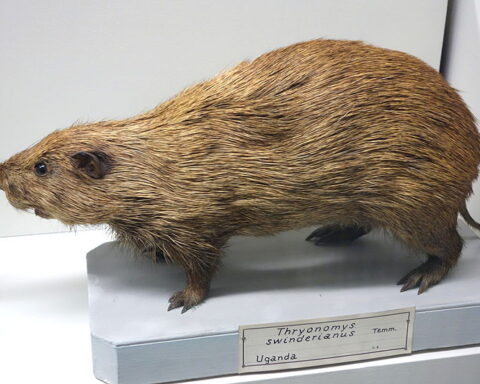Cooking homemade dog food has become increasingly popular among pet owners who want to provide their fur babies with the best nutrition. It can be a great way to ensure that your pup gets all the vitamins, minerals, and nutrients they need for optimal health and wellness.
However, when cooking for your canine companion, you should remember some do’s and don’ts. This article will cover what ingredients should and shouldn’t be used when preparing meals and the common mistakes people make when cooking for their dogs so you can avoid them.
Is it Okay to Cook your Dog’s Food?
The answer is yes – but only if you use quality ingredients and know exactly how much each nutrient needs daily. Cooking at home also allows you or someone else to ensure that all ingredients are fresh and avoid preservatives. Plus, opting for homemade meals can help to save money in the long run.
Ingredients to Use When Making Homemade Dog Food
When it comes to cooking for your canine companion, there are some specific ingredients you should look for:
-
Proteins
Quality protein sources such as boneless skinless chicken thighs, ground beef, or turkey make great additions to a homemade dog food recipe. These proteins provide essential amino acids which will help keep your pup’s muscles strong and healthy.
It is best to cook these meats before adding them into the mix so that there is no risk of salmonella poisoning. You can also add canned fish such as salmon or tuna without added salt once or twice weekly as a treat.
Other protein sources include
- Eggs: You can use quail egg for dogs and feed them raw or cooked but in moderation.
- Beans: The best are lima beans or kidney beans, but you should never use them to replace meat.
-
Carbohydrates
Carbohydrate sources give your pup the energy they need throughout the day while helping them feel fuller longer. These grains should be cooked before being combined with other ingredients to achieve proper digestion by breaking down starches during the cooking process.
The best carbohydrates to include in your pooch’s meal include:
- Oatmeal
- Brown rice
- Barley
- Quinoa
- Yams
- Sweet Potatoes
- Pasta ( no oil and salt)
-
Vegetables
Vegetables can be used as toppings on top of cooked proteins or mixed into stews/stir-fries along with the carbohydrates listed above for a balanced meal. Be sure not to add too many vegetables at once; one cup per 10 pounds is usually enough.
Frozen veggies also work well if you can’t access fresh produce. The best vegetables for your pooch’s meal include:
- Carrots
- Green Beans
- Pumpkin
- Spinach
- Cauliflower
- Green Peas
- Broccoli
- Celery
- Zucchini
- Brussel Sprouts
Ingredients to Steer Away From
There are certain foods dogs shouldn’t consume, even in small amounts. These include:
- Onions & garlic contain thiosulphate, which has been known to cause damage to red blood cells
- Avocados contain persin toxins
- Chocolate contains methylxanthines that may cause vomiting/diarrhea if ingested
- Walnuts
- Coffee
- Spices and herbs
- Macadamia nuts
- Raw yeast donuts
- Grapes & raisins have never been proven safe, so it’s best to avoid them.
Apart from these, you should never feed your furry baby food you presume to be stale or contain mold.
Ingredients to Use in Moderation
Milk, cheese, and yogurt can all be used as treats for your pup but don’t overdo it since they are high in fat and calories.
Peanut butter is also a great snack but should only be fed occasionally due to its high level of natural oils, which could result in an upset stomach if overeaten.
What Mistakes Do People Make When Cooking Dog Food?
When making homemade dog food, many people make mistakes that could make the Dog sick and even cause death. Therefore, avoid these mistakes when cooking for your pooch.
-
Failing to Use Trusted Recipes
Cooking at home lets you control exactly what goes into your Dog’s food. However, you must follow recipes from reliable sources like recipes found online or vet-approved cookbooks so that they contain the right amount of vitamins/minerals needed for optimal health.
-
Unbalanced Meals
Just like humans need balanced meals made up of proteins, carbs, vegetables, and healthy fats, dogs also need a well-balanced diet. If these components are not included in equal amounts, their bodies may suffer from deficiencies. And these could lead to bigger issues in the future, such as weakened immune systems and sometimes organ failure if left untreated for long periods.
-
Unsafe Ingredients
Avoid ingredients deemed unsafe by experts, such as grapes & raisins, onions, and garlic. It’s best practice to double-check with your vet before introducing anything new into your furry baby’s diet so that you can be sure they won’t suffer any ill effects from your home-cooked food.
-
Improvising Recipes
Although experimenting with different flavors can add variety to your puppy’s mealtime routine, it’s important not to get carried away with adding random ingredients without doing proper research.
Ensure each ingredient has nutritional benefits, like carrots providing vital Vitamin A, instead of adding it just because it tastes good.
-
Not Understanding How Dietary Changes Affect Your Dog
Dietary changes should always be done gradually over several weeks (not overnight. This gives your pooch’s digestive system time to adjust accordingly while preventing tummy upsets during the transition period.
You must also give them smaller portions more frequently throughout the day rather than one big daily dinner.
-
Not Understanding Your Dog’s Nutritional Needs
Every breed size needs different levels of nutrients daily. Therefore, familiarizing yourself with your furry baby’s specific needs will help you create a personalized plan tailored to them depending on age and nutritional needs.
Final Thoughts
When cooked correctly, homemade dog food can provide essential nutrients required for a happy, healthy lifestyle without sacrificing flavor and taste. However, developing a trusty recipe requires work and knowledge to ensure success.
Therefore educate yourself with this guide about the do’s and don’t of homemade dog food. And always consult trusted sources and your vet before making or using homemade dog food.










